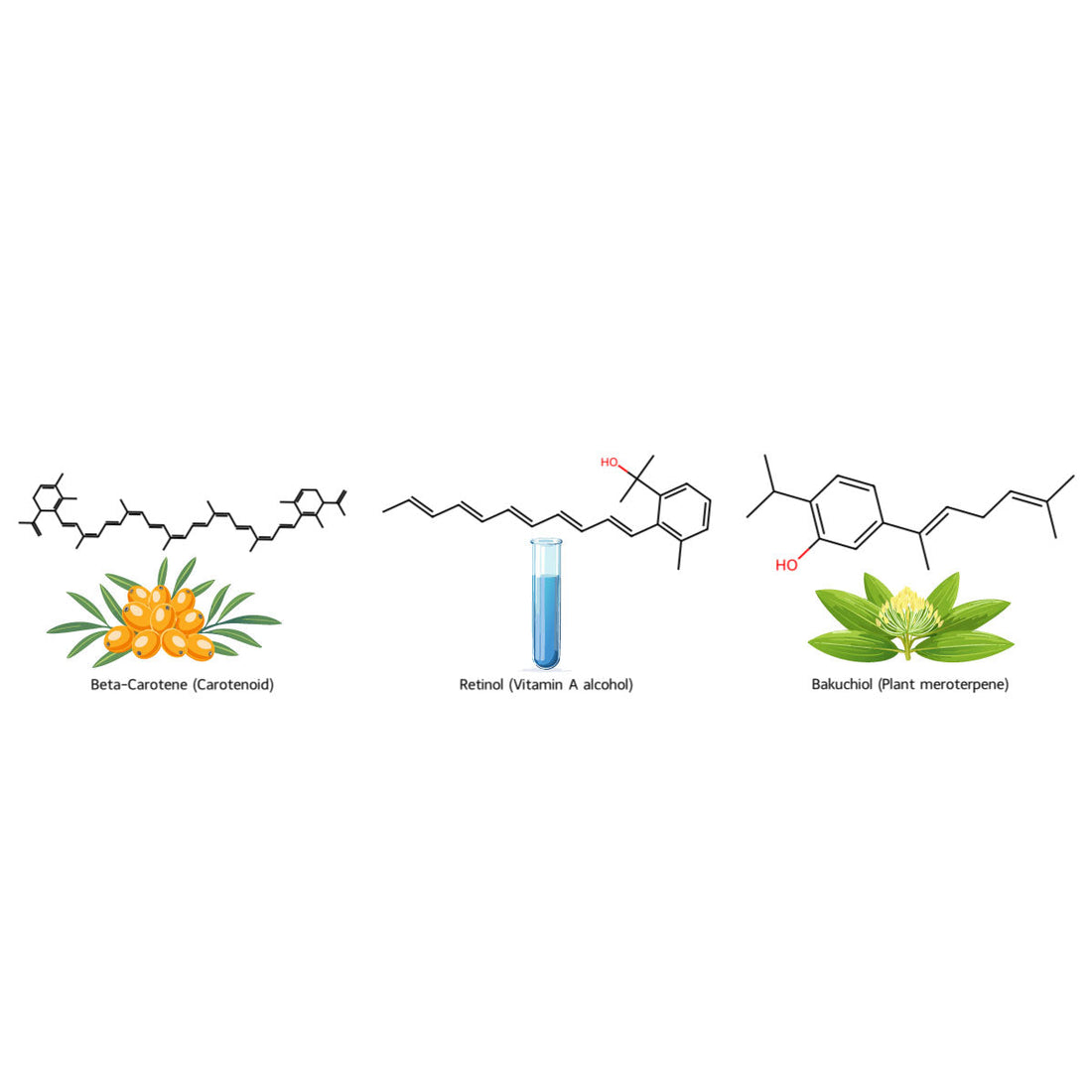If you’ve spent any time in the skincare world, you’ve probably noticed that every few years a new “miracle” ingredient takes the spotlight. For the last couple of decades it’s been retinol. More recently, the natural crowd has been buzzing about bakuchiol. And then there’s beta-carotene, often overlooked but quietly powerful.
Let’s unpack what each of these actually does — and why, at Cocoon Apothecary, we always reach for beta-carotene when we want vitamin A benefits for your skin.
Retinol: The Classic (and Complicated) Option
Retinol is a form of vitamin A that has been studied extensively and prescribed by dermatologists for decades. It converts into retinoic acid, which binds to receptors in your skin cells and literally changes how they function. The result? More collagen, smoother texture, fewer dark spots.
Sounds amazing, right? The catch is that retinol is harsh. It often causes redness, peeling, sensitivity, and makes your skin more reactive to sunlight. It also breaks down easily when exposed to light and air, so it has to be carefully stabilized in formulas. Retinol works, but it comes with baggage.
Bakuchiol: Nature’s “Retinol Alternative”
Bakuchiol is a plant compound from Psoralea corylifolia. It doesn’t convert into vitamin A, but studies show it can mimic some of retinol’s gene expression effects in the skin — boosting collagen and reducing pigmentation.
It has the advantage of being gentler and doesn’t increase sun sensitivity, which is why it’s marketed as “nature’s retinol.” But let’s be clear: bakuchiol is not vitamin A. It’s a functional mimic. That’s not a bad thing, but it’s not the same pathway that true retinoids take.
Beta-Carotene: The Overlooked Powerhouse
Now let’s talk about beta-carotene, the plant pigment that gives carrots, sweet potatoes, and sea buckthorn their vibrant orange color. Beta-carotene is what’s called a provitamin A carotenoid — meaning your body (and yes, your skin) can convert it into retinol and retinoic acid when needed.
Here’s why we love it:
-
Gentle conversion: Your skin naturally regulates how much vitamin A it makes from beta-carotene, so you never end up with too much. That means no peeling, redness, or irritation.
-
Antioxidant shield: Even before it converts, beta-carotene is an incredible antioxidant that protects your skin from free radicals and UV damage — helping to preserve collagen and prevent pigmentation.
-
Proven activity: Studies have shown that applying beta-carotene to skin leads to a tenfold increase in stored vitamin A (retinyl esters) in the epidermis. That means your skin is actively banking this nutrient for when it needs it.
-
Safe + stable: Unlike retinol, beta-carotene is stable in formulas and doesn’t make your skin more sensitive to the sun.
Why We Choose Beta-Carotene
At Cocoon Apothecary, our philosophy has always been to choose the path that’s effective, natural, and kind to your skin barrier. Retinol may deliver fast results, but at the cost of irritation and long-term sensitivity. Bakuchiol is interesting, but it’s not truly vitamin A.
Beta-carotene gives us the best of both worlds:
-
The proven vitamin A benefits (collagen support, even tone).
-
The antioxidant power of a carotenoid.
-
The gentleness and safety that align with our belief in nurturing skin, not punishing it.
We believe in working with your skin, not against it. That’s why you’ll always find us reaching for plant-based sources of beta-carotene — like sea buckthorn, rosehip, and carrot extracts — to deliver retinoid-like benefits the natural way.
Beta-carotene may not be the loudest ingredient in the skincare world, but it’s one of the most elegant. It protects, it nourishes, and it quietly supplies your skin with vitamin A on its own terms. And to us, that’s the kind of ingredient worth celebrating.

